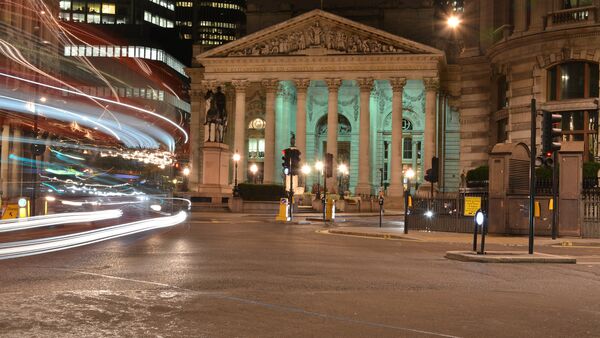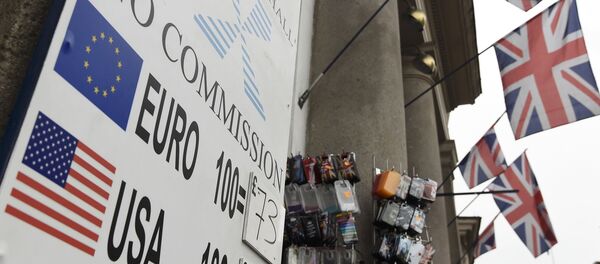The BOE's Financial Policy Committee (FPC) raised reserve requirements for commercial banks and certain other financials effective March 29, 2017, suggesting the UK's financial sector should start to brace for the reserves buildup immediately or very soon. The move is essentially part of broader effort to tighten monetary conditions, suggesting the base BOE interest rate might as well go up in spring 2017 from its current 0.5%.
The FPC hiked the countercyclical buffer rate from zero to 0.5% due to the British financial sector's mounting exposure to risks. Even though the policy move is only effective starting one year from now, the proposed capital consolidation indicates what may lie ahead in terms of BOE policy developments. These imply monetary tightening regardless of the outcome of the Brexit referendum.
"Risks associated with domestic credit are no longer subdued," while international risks "which can also affect UK exposures indirectly, are heightened," the FPC said.
Meanwhile, the BOE reiterated its intent to support financial stability via available tools. An ‘Out' vote on the Brexit referendum would mean a partial exodus of commercial banks from the UK, as well as a temporary decline in overall economic activity. That would mean a decline in investment and domestic lending, resulting in slower overall economic growth until the positive effects of Brexit, if any, reveal themselves. Sterling would also depreciate further in the event of a Brexit scenario, boosting the competitiveness of domestic manufacturers and possibly easing concerns regarding the UK's current account deficit.
"Heightened and prolonged uncertainty has the potential to increase the risk premia investors require on a wider range of UK assets," the BOE's FPC said. "These pressures have the potential to reinforce existing vulnerabilities for financial stability."
What would #Brexit mean for the UK economy? https://t.co/T8B0gxyzak #Europe pic.twitter.com/IDHc974sRP
— World Economic Forum (@wef) 27 March 2016
The BOE-suggested buildup in banks' capital reserves would provide a major boost to domestic economy in the event of Brexit. While the ‘out' vote would diminish the scope of domestic borrowing due to a declining availability of financing, the new reserves which would have accumulated in commercial banks could help make up for such disruptions, supporting economic expansion at its current rate or a slightly slower pace. In other words, the BOE is preparing the British economy to go through Brexit with minimal immediate losses.
The FPC said it is carrying on with its data assessment of Brexit risks, and is prepared to step in immediately when needed, thus reassuring investors of the competency and efficiency of the UK's monetary authorities. The BOE also emphasized that the results of its 2014 stress tests of the British banking system (the year of the Scottish secession referendum) are an indication that the financial sector can withstand the possible shock of Brexit as well. Besides, recent developments, including improvements in banks' commercial performance, the rising scope of domestic borrowing and robust economic growth in 2015, suggest the banking system is "strong enough to continue to serve households and businesses".
This, however, might not be necessary if commercial banks indeed boost their reserves by June. The FPC's initiative also does not imply the banks' commercial performance would deteriorate should they decide to build up their capital buffers.
"The bank is creating room on the downside, space that can be used if there's a Brexit, for example," Philip Rush of London-based Nomura International Plc said. "It's basically a neutral reallocation of capital within the current structure. There are some large financial imbalances in the UK economy that could correct if there's a Brexit."
The BOE also released their fresh 2016 stress test scenario, suggesting the worst outcomes of all shocks combined this year would imply a 4.3% decline in the UK's GDP, and a 4.5% rise in the jobless rate. The overheated real estate market would cool dramatically, however, which is not that bad, with residential housing prices dropping by 31%, and commercial properties depreciating by 42%.



